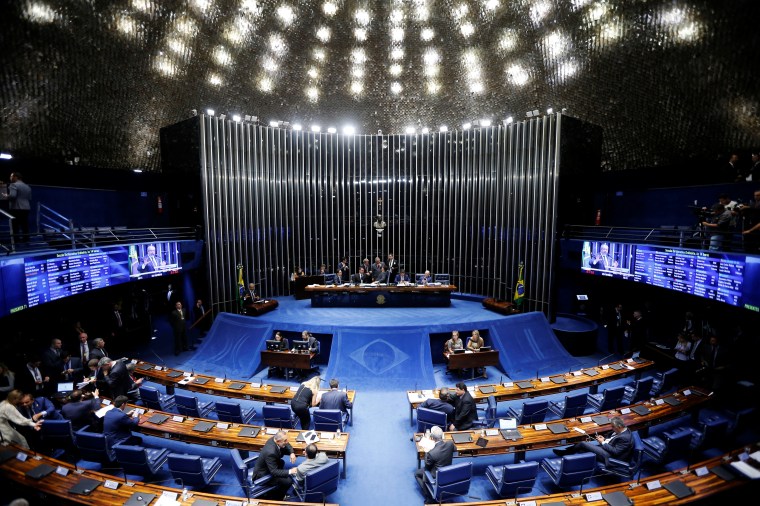New York, June 8, 2020 — Brazil’s Senate should drop proposed legislation seeking to regulate online content and so-called “fake news,” or amend the bill to ensure that free speech is protected, the Committee to Protect Journalists said today.
Bill 2630, titled the “Lei das Fake News,” was originally scheduled for a vote on June 2, but was postponed until this week, according to an announcement on Twitter by Senate President Senator Davi Alcolumbre, which did not specify a new date for the vote.
As drafted, the law would require internet users to provide personal information, such as a photo ID and a document proving their address, to providers of social media and messaging applications and platforms in order to access them, and would grant law enforcement access to that data without requiring a court order. It would also give a judge the ability to fine, suspend, or block application providers that do not abide by the law.
“Misinformation is a significant issue in Brazil, but rushing through a law that opens the door to privacy violations and random content removal under the guise of combating ‘fake news’ is the wrong approach,” said CPJ South and Central Americas Program Coordinator Natalie Southwick. “Brazilian lawmakers should reject this proposal and ensure any future legislation on online content does not restrict the right to free expression.”
Voting on the bill was postponed following a request from Senator Alessandro Vieira, the bill’s author and a member of opposition Cidadania party, to ensure that senators had more time to debate it, according to the Senate’s website. The draft legislation has received dozens of proposed amendments as of today, according to the bill’s webpage.
The Brazilian Association of Investigative Journalism (Abraji) said in a statement that Brazil’s existing legislation already covers most scenarios of intentional production and dissemination of false information and that the creation of an additional legal instrument would pose more risks to press freedom than potential benefits to society.
If it is passed by the Senate, the bill will be sent to the House of Representatives for approval, according to reports.
CPJ emailed Vieira, Senate President Davi Alcolumbre, and Senator Ângelo Coronel, the designated rapporteur of the bill, for comment, but did not receive any responses.
